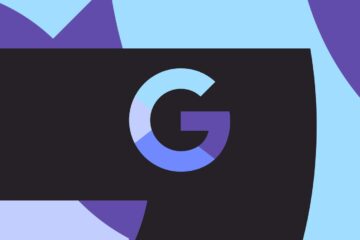Sergey Tarasov – stock.adobe.com
The Gaia-X project has become a lot more serious. What started about a year ago as a Franco-German undertaking has mushroomed to take in 181 members from 18 countries and, interestingly, these include six non-European nations.
Set up by representatives from the fields of politics, business and science, its aim is to create a cross-continent data infrastructure based on open standards, created “by Europe, for Europe”.
The organisation behind the project held its annual summit in November 2020, and in the process gave attendees a sneak peek at how its work is progressing.
There were two significant revelations. First of all was the information that, in a further endorsement of the project, it has received more heavy investment from the French and German governments. This was something that struck Amanda Brock, CEO of British open computing organisation Open UK, who said: “I was impressed by the levels of funding from the French and German governments for the Gaia-X platform and by the €21bn commitment to investment in digital from the Commission.”
The commitment to open computing has been an impetus to Brock, who made sure that Open UK was an early member of Gaia-X. “We made this commitment as we wanted to ensure that the UK was at this particular table and to do what we can to facilitate access to Gaia-X and other European open technology collaborations over time,” she said.
Brock added that such a move fulfilled the organisation’s remit. “We promote UK leadership in open technology,” she said. “That’s not an inward-looking activity, but one that pushes our talent and businesses into the global landscape.”
The second revelation at the summit was that the project has attracted the support of US hyperscaler cloud giants Amazon Web Services, Microsoft and Google. When Gaia-X was first mooted, there was a sense that it was seen as a means of establishing a European presence against the major providers from across the Atlantic, but it soon became apparent that the cloud mega giants were very attracted to the establishment of a common data platform across Europe.
Speaking at the summit, Wieland Hopfer, vice-president of engineering at Google in Munich, said the company shared common objectives with the Gaia-X project. “Google Cloud is committed to Europe,” he said. “Some of our important partnerships are with European companies, like ATOS and OVH Telecom Italia. The Gaia-X vision closely follows that of Google’s, in that we share an idea of an open cloud that frees customers from vendor lock-in and we believe in a multicloud approach and we build with that in mind.”
Hopfer’s views were echoed by Microsoft vice-president Casper Klynge, who stressed the need for more global, and specifically European, co-operation. “This initiative was launched before the Covid pandemic and has taken on greater urgency since then,” he said.
Klynge said there were some key principles that Microsoft and Gaia-X believed in, including the idea that:
In particular, he said, Gaia-X can help to deliver on a green new deal for Europe.
So where will the UK be as the EU rolls out this project further? Speaking to Computer Weekly, Gaia-X board member Olivier Senot said UK organisations would be welcomed, but would not have any involvement in future direction. “The UK will be treated as a country from outside Europe in the same condition as Google or Microsoft,” he said. “It could be part of the project, but cannot be part of the board.”
Undoubtedly there will be more members from the UK – the prospect of such a large multinational organisation on its doorstep will be attractive. Certainly, Brock saw other UK organisations following suit. “UK firms will undoubtedly want to participate post-Brexit and we are already working with Open Compute on this,” she said.
“OpenUK’s first day membership of GaiaX will be central to their involvement. To secure the UK’s – or any country’s – digital future in this locally focused moment in time, it is fundamental that we collaborate globally across technology and create trust through transparency and openness.”
The Gaia-X project has certainly shaken US dominance when it comes to cloud and data platforms, and Brock recognised the need for other countries to have a say.
“I am not surprised that 18 countries are participating as geopolitical shift is having a major impact on tech,” she said. “And as the tech infrastructure and citizen data are right in the centre of all governments’ radar and planning now, I suspect we will see many more countries joining.”
Beyond the firm intentions to attract more users and revelations about the scale of investment, there was little in the way of concrete proposals for the way forward at the summit.
Gaia-X CEO Boris Otto spoke about wanting to get all 27 EU members involved, but there are still lots of areas to explore. One thing that is still not decided is whether there will be a common data depository for the organisation – that’s still up in the air.
The organisation is clear about some things, though – it will not be a standards body, even though it talks about following open standards throughout. “Gaia-X is not a standardisation organisation – the technical implementation will respect the actual standards,” said Senot.
Above all, despite the attraction of being a major European hyperscaler ready to compete with the US, this is not on the agenda. Otto added: “This is not about creating a cloud provider. It’s going to be a federated data infrastructure.”
Open UK’s Brock is not disheartened by the lack of progress in some of these areas. “We’d all like things to be quicker in digital, but this kind of set-up takes time and I think the progress at Gaia-X is probably what should be expected so far,” she said.
It’s certainly a project that will shake up the European landscape in the coming months.
In September 2020, the Computer Weekly Security Think Tank, our panel of information and cyber security experts, considered the challenges inherent in decentralising the datacentre, and set out to answer the question, how can security professionals ensure such setups are just as secure as the traditional centralised model? Read more in this e-guide.
By submitting my Email address I confirm that I have read and accepted the Terms of Use and Declaration of Consent.
Companies need to work on ensuring their developers are satisfied with their jobs and how they’re treated, otherwise it’ll be …
Companies must balance customer needs against potential risks during software development to ensure they aren’t ignoring security…
With the right planning, leadership and skills, companies can use digital transformation to drive improved revenues and customer …
Ransomware incapacitated Baltimore County Public Schools’ network just before Thanksgiving, but the school system said students’ …
A spokesperson for K12 told SearchSecurity that based on the current status of the investigation, the attack did not affect …
A security operations center can help lessen the fallout of a data breach, but its business benefits go much further than that. …
Celona 5G technology uses Citizens Broadband Radio Service spectrum to bring private mobile networking to the enterprise, …
Cisco DevNet certifications require a lot of time investment, but network pros who pursue the certifications say the gained …
Cloud automation use cases highlight the benefits these tools can provide to companies evaluating how best to manage and …
Finding the right server operating temperature can be tricky. ASHRAE standards provide guidance for all server classes and what …
These unexpected charges and fees can balloon colocation costs for enterprise IT organizations.
Off-site hardware upkeep can be tricky and time-consuming. With remote hands options, your admins can delegate routine …
Check out this excerpt from the new book Learn MongoDB 4.x from Packt Publishing, then quiz yourself on new updates and …
MongoDB’s online archive service gives organizations the ability to automatically archive data to lower-cost storage, while still…
Data management vendor Ataccama adds new automation features to its Gen2 platform to help organizations automatically discover …
All Rights Reserved, Copyright 2000 – 2020, TechTarget
Privacy Policy
Cookie Preferences
Do Not Sell My Personal Info


